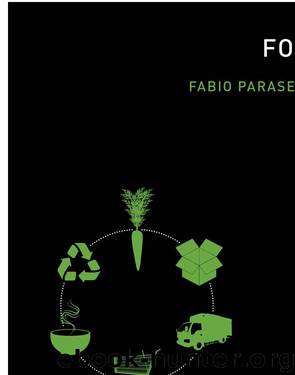Food by Fabio Parasecoli

Author:Fabio Parasecoli
Language: eng
Format: epub
Tags: food system; food systems; infrastructure; political economy; food justice; health; nutrition; sustainability; sustainable agriculture; farms; small famrs; farming; agriculture; hunger; food security; agrobiodiversity; blockchain; Appertization; biofuel; biofuels; CSA; community-supported agriculture; contract farming; foodshed; foodways; food desert; food safety; food regime; food sovereignty; food movement; GMO; GMOs; genetically modified crops; green revolution; land grabbing; locavorism; locavore; monoculture; organic agriculture; organic; supply chain; supply network; taste; food supply
Publisher: The MIT Press
Published: 2019-05-02T16:00:00+00:00
Embracing New Perspectives
Food geographies are shifting globally, forcing production patterns and economies to adjust and reorganize themselves. As the interconnection between agriculture and climate change becomes clearer, new resilience, adaptation, and mitigation strategies are required that move away from the exclusive focus on increasing production. Offering a diverging path from the green revolution approach, which favored mechanization and intensive use of inputs (see chapter 5), emerging agroecological methods emphasize agrobiodiversity, synergies among different production sectors, composting and repurposing of materials, and a more efficient use of resources and inputs. They also incorporate local crops that farming communities around the world have developed over generations, as well as traditional technologies for soil management.
Crops that had been almost abandoned because of their low yields, high labor requirements, or scarce adaptability to industrial production methods are newly appreciated because of their resiliency, resistance to drought, and nutritional value. For example, the cultivation of fonio, a tiny grain originally from the Sahel area in sub-Saharan Africa, is expanding thanks both to the plant’s capacity to tolerate drought conditions and to its lack of gluten, which meets consumers’ evolving preferences in the Global North. In East Africa, farmers have reintroduced sorghum, millets, and various beans to counteract the failure of rains. In India, traditional rice varieties, green gram, and many pulses are being embraced as a response to water scarcity. The same is happening in Central America with amaranth.
Seed companies and biotech labs also are participating in the research on drought-tolerant crops, both through traditional selection processes and genetic modification. However, in the case of GMOs, the agribusiness’s ownership of the intellectual property of genetic materials limits farmers’ control over their crops because seeds from one year’s harvest legally can’t be set aside and used in the following growing seasons (see chapter 5).
Daring initiatives and new perspectives are necessary to address long-term sustainability in ways that take into consideration environmental, economic, and social issues while responding to consumers’ needs and preferences. Not only food producers but also all other stakeholders in the global food system have to be involved, including celebrity chefs. US chef Dan Barber, for instance, has suggested that farmers shouldn’t grow what consumers (including chefs) demand, but instead we should all consume what the farmers need to grow to maintain the fertility of their soil and the viability of farming as a productive activity. Italian chef Massimo Bottura has launched soup kitchens where famous chefs cook food that otherwise would go to waste to feed those in need. Brazilian chef Alex Atala has highlighted plants and animals from the Amazon to provide jobs to people from the area and support better environmental management. Senegalese chef Pierre Thiam promotes fonio around the world, opening markets for smallholders in the Sahel area.
Although consumers, activists, and producers certainly play a central role in ushering innovation in the food system, the intervention of institutions, governments, researchers, and policymakers—both at the national and international levels—is fundamental to tackle urgent global issues that no single stakeholder can address, such as climate change.
Download
This site does not store any files on its server. We only index and link to content provided by other sites. Please contact the content providers to delete copyright contents if any and email us, we'll remove relevant links or contents immediately.
The Secret History by Donna Tartt(19092)
The Social Justice Warrior Handbook by Lisa De Pasquale(12190)
Thirteen Reasons Why by Jay Asher(8912)
This Is How You Lose Her by Junot Diaz(6889)
Weapons of Math Destruction by Cathy O'Neil(6281)
Zero to One by Peter Thiel(5802)
Beartown by Fredrik Backman(5756)
The Myth of the Strong Leader by Archie Brown(5509)
The Fire Next Time by James Baldwin(5447)
How Democracies Die by Steven Levitsky & Daniel Ziblatt(5219)
Promise Me, Dad by Joe Biden(5154)
Stone's Rules by Roger Stone(5088)
A Higher Loyalty: Truth, Lies, and Leadership by James Comey(4964)
100 Deadly Skills by Clint Emerson(4926)
Rise and Kill First by Ronen Bergman(4790)
Secrecy World by Jake Bernstein(4753)
The David Icke Guide to the Global Conspiracy (and how to end it) by David Icke(4720)
The Farm by Tom Rob Smith(4514)
The Doomsday Machine by Daniel Ellsberg(4490)
